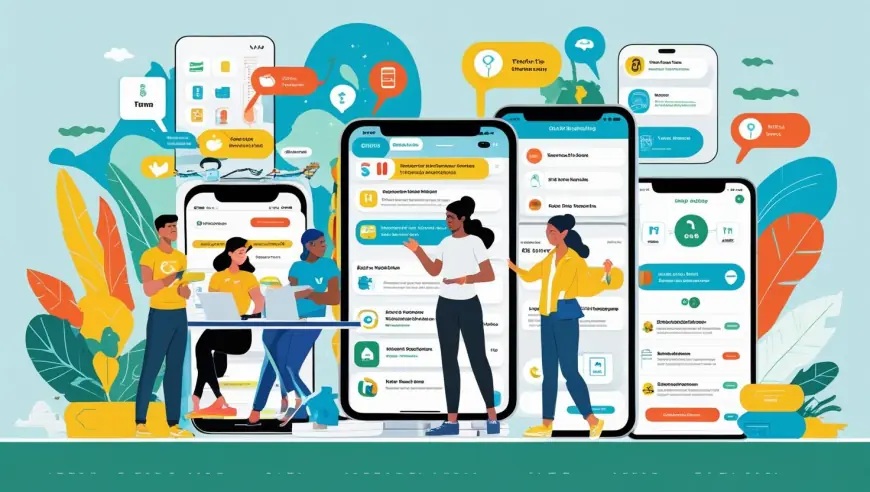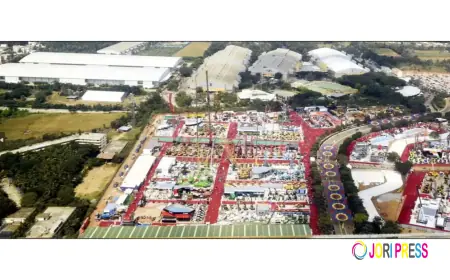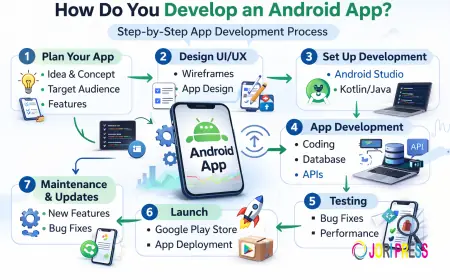How Mobile App Development Companies Are Powering Smart Cities
Discover how mobile app development companies in Bahrain are driving smart cities with apps for transport, utilities, safety, and citizen engagement.

In today’s digital-first world, the concept of “smart cities” is rapidly becoming a reality. Across the globe, governments and businesses are investing in advanced technologies that make urban areas more efficient, sustainable, and citizen-friendly. At the heart of this transformation are mobile app development companies the unseen drivers that are creating digital platforms to connect citizens, businesses, and governments in smarter ways.
For Bahrain, which has positioned itself as a digital innovation hub in the Middle East, this movement is especially significant. By leveraging the expertise of mobile app development companies in Bahrain, the nation is aligning itself with the global vision of smart, sustainable, and highly connected cities.
In this blog, we’ll explore how mobile app developers are powering the rise of smart cities, what industries are benefiting most, and why companies in Bahrain have a critical role to play.
What Makes a City “Smart”?
A smart city integrates technology into urban management to improve efficiency, reduce costs, and enhance quality of life. It’s not just about installing sensors or digitizing infrastructure—it’s about building an interconnected ecosystem where data and technology work together seamlessly.
Mobile applications play a central role in this ecosystem. Think about how you interact with a modern city today:
-
Paying utility bills online
-
Using mobile apps to track public transportation
-
Reporting municipal issues through apps
-
Navigating smart parking systems
-
Accessing real-time updates on traffic, weather, and events
All of these examples demonstrate how mobile apps serve as the bridge between smart infrastructure and everyday life. Without mobile applications, most of the benefits of smart cities would remain inaccessible to citizens.
The Role of Mobile App Development Companies
Mobile app development companies bring expertise in design, usability, scalability, and security. Their role is to translate a city’s smart infrastructure into user-friendly platforms that residents can actually use.
Here’s how they’re contributing to smart city growth:
-
Smart Transportation Apps
Developers create apps that integrate real-time data from buses, metros, ride-sharing services, and even bike rentals. These apps reduce congestion, improve public transit experiences, and encourage eco-friendly commuting. -
Citizen Engagement Platforms
Cities are building apps where residents can submit complaints, request services, or even participate in decision-making through polls. This strengthens the relationship between government and citizens. -
Smart Utility Management
Mobile apps now allow citizens to monitor water, gas, and electricity consumption in real time. This empowers people to conserve energy while giving governments valuable insights into usage patterns. -
Healthcare Accessibility
With telemedicine apps and hospital appointment booking platforms, smart cities ensure healthcare services are always within reach. -
Safety and Emergency Apps
From reporting crimes to alerting citizens during emergencies, mobile apps are becoming the backbone of urban safety strategies.
Bahrain’s Vision for Smart Cities
Bahrain has been steadily working toward becoming a leader in digital transformation within the GCC. The kingdom’s Economic Vision 2030 emphasizes innovation, digital infrastructure, and citizen-focused services. Mobile technology plays a major role in this journey.
The growing presence of mobile app development companies in Bahrain is helping the nation:
-
Build localized smart city solutions that reflect Bahrain’s unique culture and population.
-
Enhance digital governance, making government services accessible via apps.
-
Support entrepreneurship by giving startups access to advanced app technologies.
-
Promote sustainability by creating apps that encourage energy efficiency and green practices.
This localized expertise is invaluable because imported solutions often don’t fully capture the needs of Bahrain’s residents. Homegrown mobile app developers can design with Bahraini culture, language, and infrastructure in mind.
Examples of Smart City Applications
To see the real impact, let’s look at some areas where mobile apps are already transforming urban living:
1. Smart Parking Solutions
Finding parking in busy cities is often a nightmare. Mobile apps now connect with IoT sensors embedded in parking lots to show drivers available spots in real time. This saves time, reduces traffic, and cuts emissions.
2. Waste Management Apps
Mobile platforms are helping cities track garbage collection, notify citizens of recycling schedules, and even gamify eco-friendly practices.
3. Digital Payments and FinTech Integration
Cashless societies are a cornerstone of smart cities. From public transportation to small businesses, mobile apps make it easy to pay, transfer, and manage finances securely.
4. Tourism and Culture Apps
Bahrain, with its rich cultural heritage, can benefit greatly from apps that guide tourists through smart navigation, museum tours, and AR-powered cultural experiences.
5. E-Government Apps
Many governments are investing in apps that allow citizens to pay taxes, renew licenses, and access other services directly from their phones—streamlining bureaucracy and improving satisfaction.
Challenges Mobile App Developers Face
While the potential of mobile apps in smart cities is exciting, developers face several challenges:
-
Security Concerns: With apps handling sensitive data like financial transactions and healthcare information, cybersecurity becomes a top priority.
-
Integration with Legacy Systems: Many cities still rely on older infrastructure that may not seamlessly connect with modern apps.
-
User Adoption: Citizens may resist new technologies unless apps are user-friendly and accessible to people of all ages.
-
Scalability: As cities grow, apps must scale to handle increasing users without losing performance.
Despite these hurdles, mobile app development companies in Bahrain are proving that with innovation and expertise, these challenges can be successfully overcome.
The Future of Smart Cities and Mobile Apps
Looking ahead, mobile apps will only become more integrated into daily urban life. Some exciting trends include:
-
AI-Powered Apps: Artificial intelligence will allow smarter predictions for traffic, energy use, and emergency response.
-
Blockchain for Transparency: Governments may use blockchain-based apps to ensure transparent service delivery and eliminate corruption.
-
Augmented Reality Experiences: From tourism to real estate, AR-powered mobile apps will make exploring cities more interactive.
-
5G-Enabled Services: Ultra-fast internet will enable real-time data sharing, making apps more powerful than ever.
For Bahrain, embracing these trends through local developers will position it as a leader in the regional smart city race.
Why Businesses Should Care
Smart city development isn’t just about governments—it’s also a golden opportunity for businesses. Companies can collaborate with app developers to:
-
Launch customer-focused services aligned with smart infrastructure.
-
Build apps that integrate with smart payment and logistics systems.
-
Tap into new markets created by growing urban populations.
By partnering with mobile app development companies in Bahrain, businesses can ensure their solutions align with the broader smart city ecosystem while gaining a competitive edge.
Conclusion
Smart cities are no longer just a futuristic vision—they are becoming today’s reality. At the center of this transformation are mobile applications, which empower citizens, connect governments, and enable businesses to thrive.
In Bahrain, the growth of local talent and the presence of mobile app development companies in Bahrain is accelerating the nation’s journey toward becoming a fully digital and sustainable smart city hub in the Middle East.
For citizens, this means greater convenience, safety, and participation in shaping urban life. For businesses, it means new opportunities in a rapidly evolving digital marketplace. And for governments, it represents a pathway to efficiency and innovation.
Ultimately, as mobile apps continue to power smart cities worldwide, Bahrain’s developers are proving that they can build solutions not just for today’s challenges, but for the future of urban living.
What's Your Reaction?
 Like
0
Like
0
 Dislike
0
Dislike
0
 Love
0
Love
0
 Funny
0
Funny
0
 Angry
0
Angry
0
 Sad
0
Sad
0
 Wow
0
Wow
0



















































